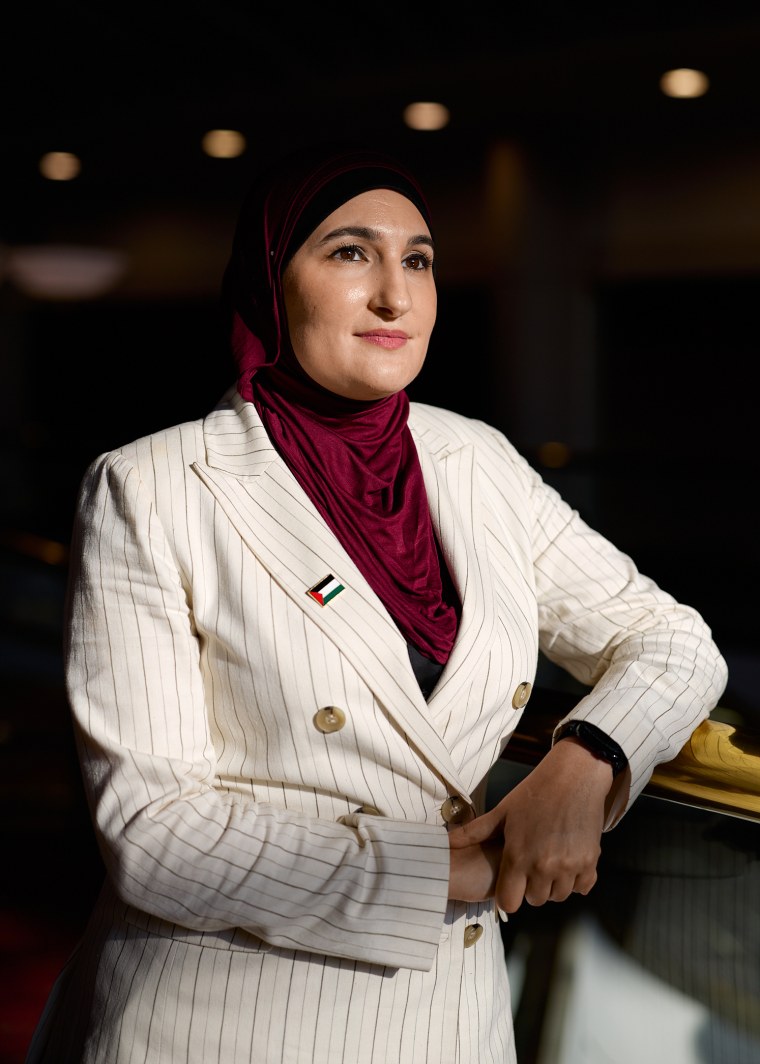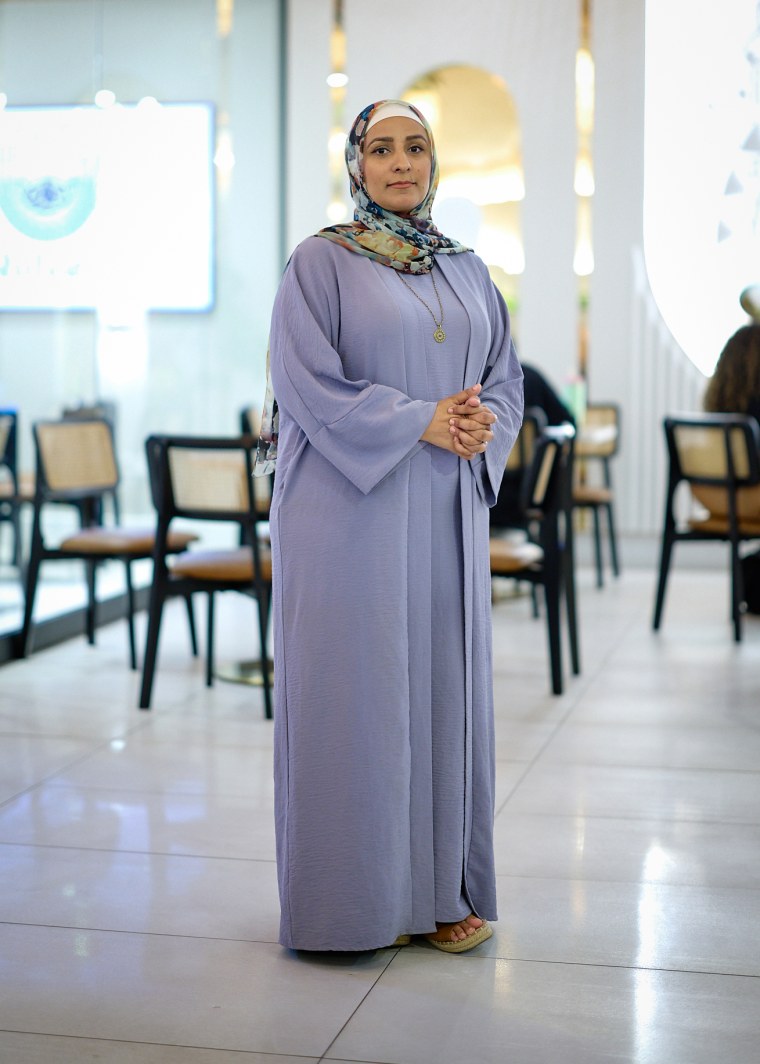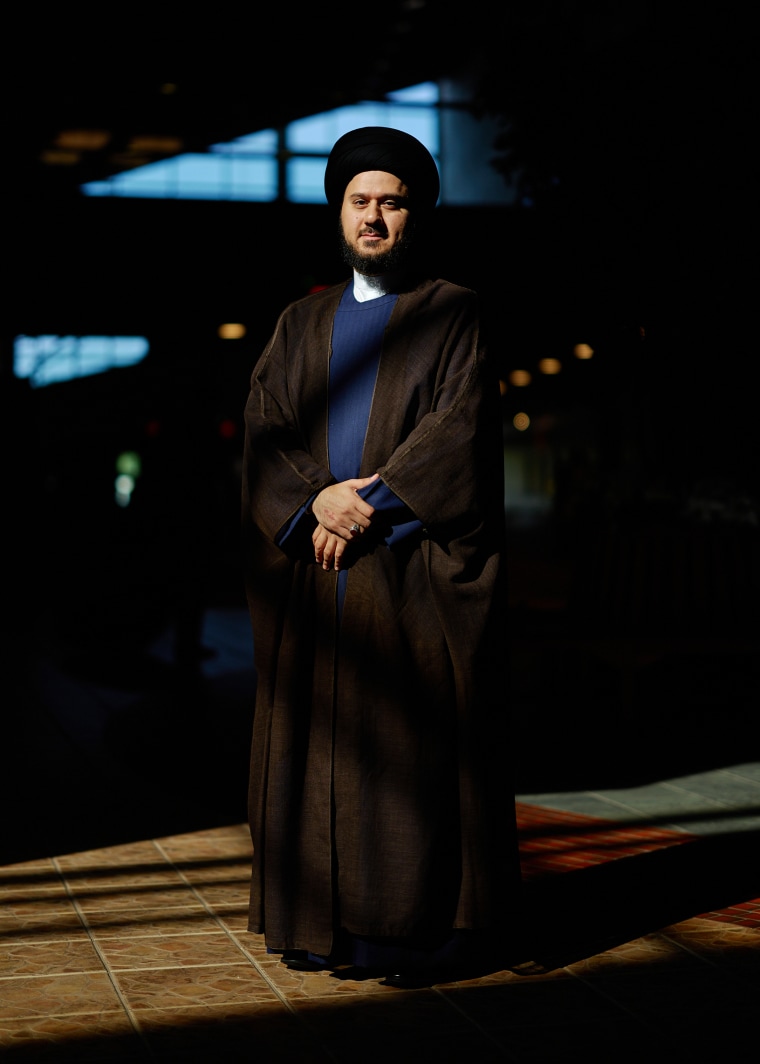Farhat expressed that Democrats have “overlooked significant chances” to ease the concerns of Arab American voters regarding the ongoing situation in Gaza. He highlighted a major concern: the ongoing discussions about sending arms to Israel for military operations in the region. Furthermore, he noted that while the Democratic National Convention was influenced by the war, it notably featured the parents of Hersh Goldberg-Polin, who was abducted and killed by Hamas on October 7, 2023, yet did not allow any Palestinian American voices to be heard.
“It’s time we start listening. We’ve moved beyond mere talk,” Farhat remarked. “Voters like us are looking for concrete actions in terms of policy reform, not just changes in language, but for the party that has received our support over time to advocate for us.” He is committed to taking action himself.
Mariam Hassanein, 24, resigned from her position at the Biden administration’s Interior Department earlier this summer due to her objection to the U.S. response to the conflict in Gaza. She asserts that simply pressuring Democratic voters for support won’t yield results, emphasizing that it falls on the candidates to earn their votes.
“From an independent or third-party standpoint, guiding individuals away from voting according to their beliefs isn’t our role,” Hassanein stated. “If we rest on the notion that change is unattainable, then initiative will indeed be stifled. Accepting the status quo guarantees nothing will evolve.”
Activist Linda Sarsour, who resides in Brooklyn, New York, but attended Arabcon in Dearborn, echoed similar perspectives shared by others interviewed by NBC News. She indicated that the Arab American community’s worries reach beyond the situation in Gaza and encompass numerous domestic challenges.

“We have concerns about healthcare, economic matters, transportation, property taxes, and electricity rates often dictated by large companies,” Sarsour told NBC News at ArabCon. “While the conflict in Gaza is indeed crucial to us, we also seek to understand candidates’ plans for these other issues.”
Beyond Gaza
While Gaza is a significant concern for many Arab Americans, it is not the sole issue weighing on their hearts. The U.S.-backed, Saudi-led conflict in Yemen has pushed millions to the edge of famine. The now widely contested Iraq war has resulted in the deaths of 200,000 civilians and continues to haunt many refugees finding shelter in Dearborn. Additional US airstrikes have devastated Syria and Libya, fostering deep-seated skepticism regarding U.S. policy in the region.
Mona Mawali, 39, a Yemeni-American, faced personal tragedy when she lost her uncle to a missile strike during the Yemeni conflict. Her family’s experiences resonate with many, prompting her to leave her pharmacy career to become a community organizer.

“He was attending a funeral when the missile struck the venue,” Mawali shared with NBC News at the busy Yemeni Coffee House on Schaefer Street. “He was like a father to me.”
Saeed Saleh Qazwini, who leads an Arab-majority congregation at the Islamic Education and Community Center of America (MECCA) near Canton, conveyed that his community has witnessed the slow devastation of their home country over the years. The Iraqi-American lamented that his family has “already borne the consequences” of U.S. foreign policy.

“Our government criticizes other nations for human rights violations, so why aren’t they addressing the situation?” Qazwini asked regarding the conflict in Gaza. “Why are they supplying munitions that harm children and innocent civilians?”
Lebanese-American students Zena Alzein and Zarah Bassoun, both 19, cast their votes for both Harris and Trump, influenced by their foreign policy decisions in the Middle East. They expressed a desire for a more ethical approach.
“We prefer to believe we didn’t contribute to enabling such atrocities to occur,” Bassoun said, with Alzein agreeing.


